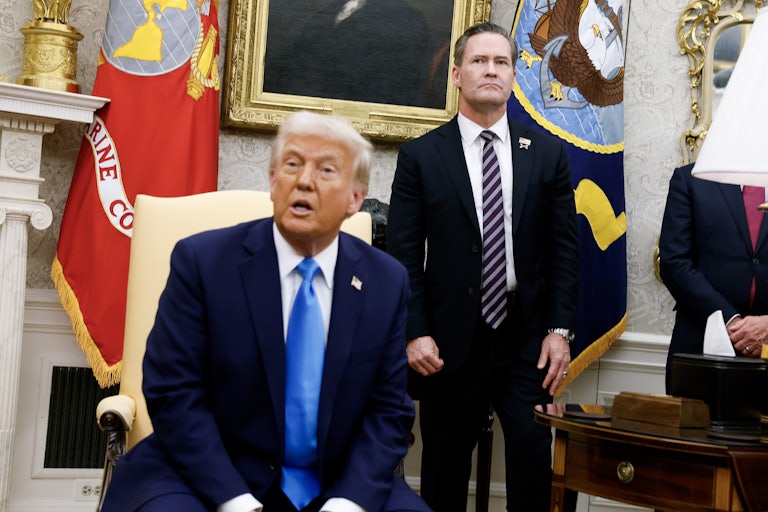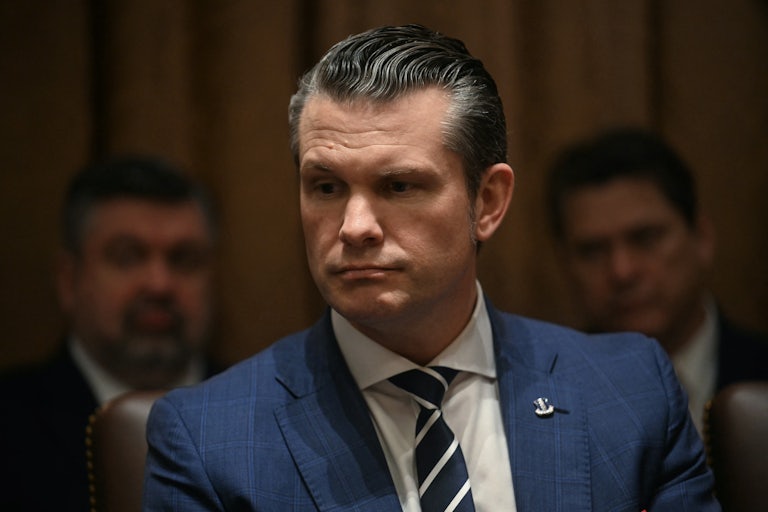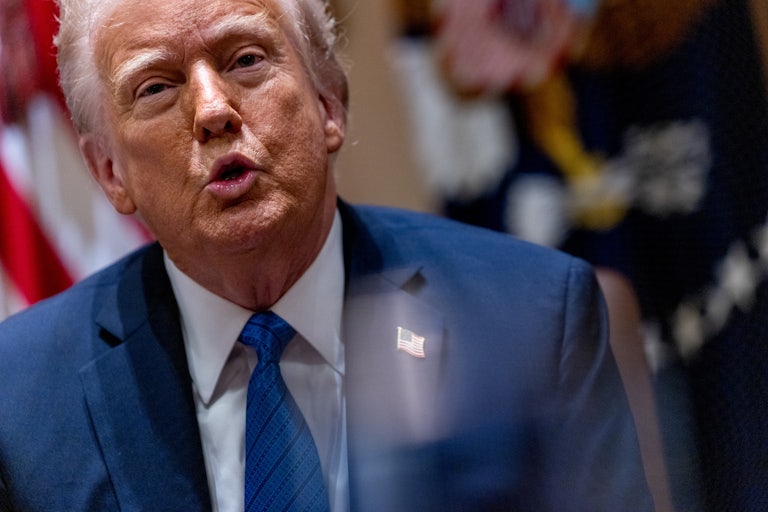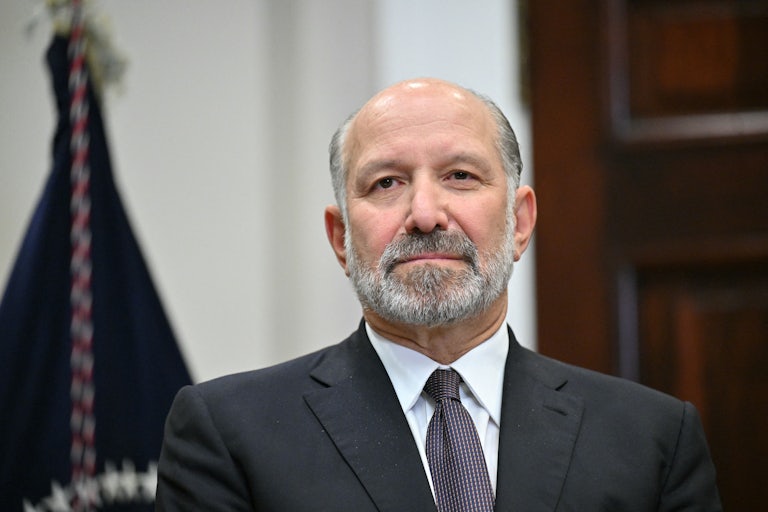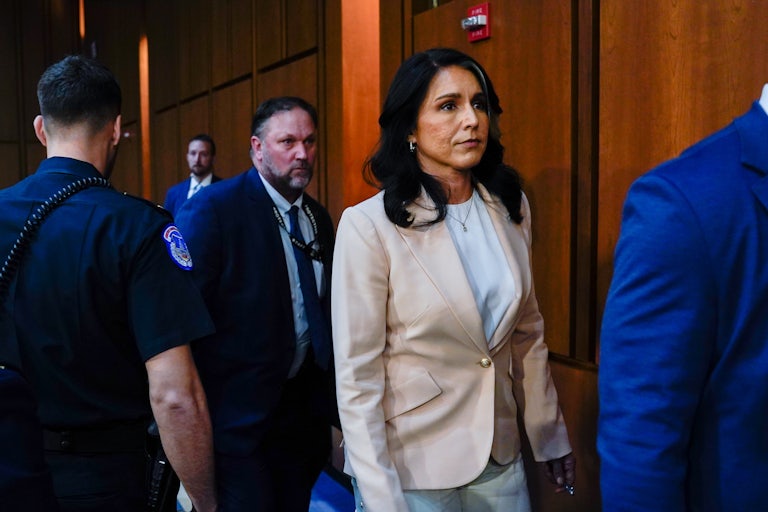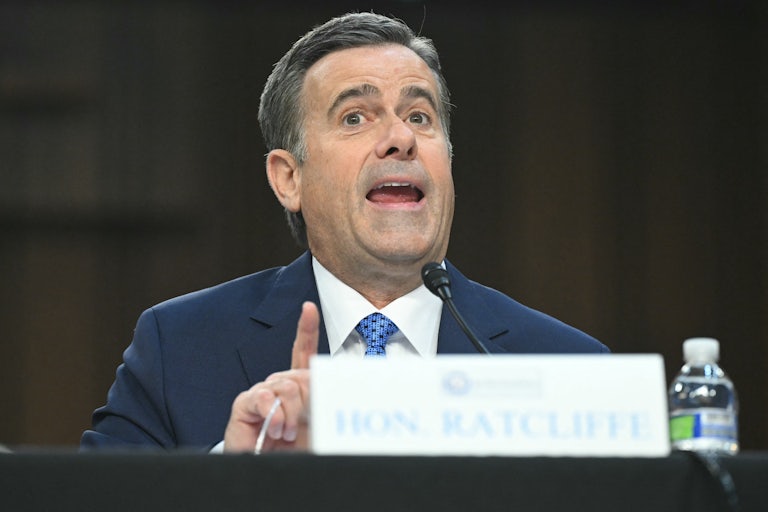The Atlantic on Wednesday
published the complete messages of the
Signal group chat used by senior officials in the Trump administration to discuss its plans to attack the Houthis, after the White House
claimed that “no war plans” were discussed and “no classified information” was shared. Obviously, they lied.
Texts from Defense Secretary Pete Hegseth on March 15 reportedly included information about the timing and location of the missile strikes set to take place in Sanaa later that day.
“TIME NOW (1144et): Weather is FAVORABLE. Just CONFIRMED w/CENTCOM we are a GO for mission launch,” Hegseth wrote in one message.
Then, “1215et: F-18s LAUNCH (1st strike package)” and “1345: ‘Trigger Based’ F-18 1st Strike Window Starts (Target Terrorist is @ his Known Location so SHOULD BE ON TIME—also, Strike Drones Launch (MQ-9s),” he wrote.
Hegseth provided information in a non-secure group chat a full two hours before the strike was intended to take place. According to the director of intelligence’s
guidance on classification, “information providing indication or advance warning that the U.S. or its allies are preparing an attack,” is considered top secret.
During a Senate Intelligence Committee hearing Tuesday, Director of National Intelligence Tulsi Gabbard refused to say whether she had participated in the chat, but
insisted that there had been no classified information shared in the chat.
In the group chat, however, Hegseth continued to spill sensitive information in another series of texts, explaining the timing of subsequent attacks, including “WHEN THE FIRST BOMBS WILL DEFINITELY DROP.”
“1410: More F-18s LAUNCH (2nd strike package),” he wrote. “1415: Strike Drones on Target (THIS IS WHEN THE FIRST BOMBS WILL DEFINITELY DROP, pending earlier ‘Trigger Based’ targets).”
“1536 F-18 2nd Strike Starts—also, first sea-based Tomahawks launched,” and “MORE TO FOLLOW (per timeline)” Hegseth wrote.
“We are currently clean on OPSEC”—that is, operational security, the Defense Secretary added, though clearly it wasn’t entirely true. “Godspeed to our Warriors.”
The Signal user identified as Vice President JD Vance responded, “I will say a prayer for victory.”
Mike Waltz, Trump’s national security advisor reportedly responsible for inadvertently adding The Atlantic’s editor-in-chief Jeffrey Goldberg to the conversation, sent a message explaining that some targets had been identified in a building collapse.
“VP. Building collapsed. Had multiple positive ID. Pete, Kurilla, the IC, amazing job,” Waltz wrote, referring to General Michael E. Kurilla, the commander of Central Command.
Vance didn’t quite understand. “What?” he replied.
Shortly after, Waltz followed up. “Typing too fast. The first target—their top missile guy—we had positive ID of him walking into his girlfriend’s building and it’s now collapsed,” he wrote, being horrifyingly cavalier about potential civilian deaths.
A round of congratulatory texts went out, including Waltz’s now infamous “👊🇺🇸🔥”When asked whether the White House objected to the release of the full texts, Press Secretary Karoline Leavitt sent the following statement: “As we have repeatedly stated, there was no classified information transmitted in the group chat. However, as the CIA Director and National Security Advisor have both expressed today, that does not mean we encourage the release of the conversation. This was intended to be a an [sic] internal and private deliberation amongst high-level senior staff and sensitive information was discussed. So for those reason [sic]—yes, we object to the release,” she wrote.
Goldberg had initially published details about the sensitive information discussed in the group chat, leaving out the newly released sections over concerns that if “read by an adversary of the United States, could conceivably have been used to harm American military and intelligence personnel, particularly in the broader Middle East, Central Command’s area of responsibility.”
This story has been updated.

